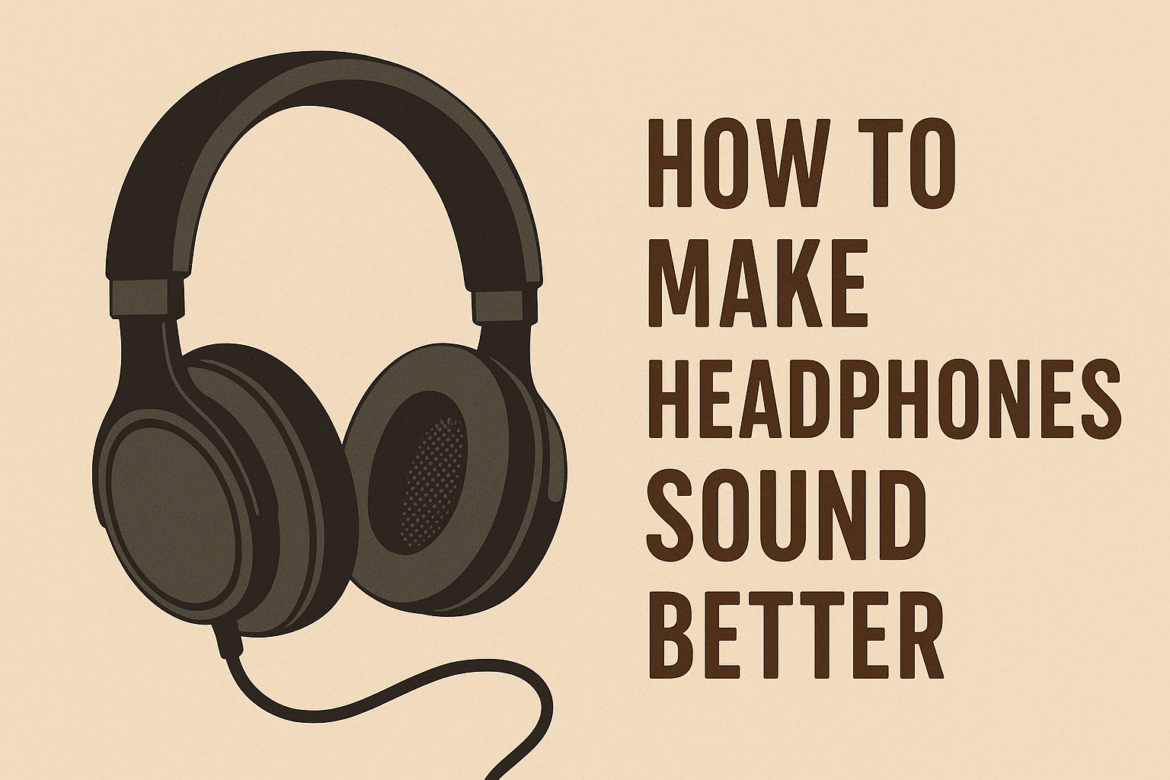No cenário sonoro agitado de hoje, fones de ouvido Os fones de ouvido são mais do que simples alto-falantes; são portais para experiências imersivas, portas de entrada para mundos de música, podcasts e audiolivros. No entanto, nem todos os fones de ouvido são iguais, e mesmo os melhores às vezes podem deixar a desejar. Então, como podemos elevar a experiência com nossos fones de ouvido ao seu potencial máximo? Vamos embarcar em uma jornada para explorar maneiras de aprimorar o som dos seus fones.
Compreendendo seus fones de ouvido
Antes de nos aprofundarmos nos aprimoramentos, é crucial entender com o que você está trabalhando. Os fones de ouvido vêm em vários estilos e tecnologias, cada um afetando a qualidade do som de forma diferente.
Tipos de fones de ouvido
- Over-Ear Fones de ouvido:Eles oferecem excelente isolamento sonoro e geralmente produzem um som rico e encorpado.
- Fones de ouvido intra-auriculares: Mais portátil, mas pode deixar entrar mais ruído externo.
- In-Ear Monitores (IEMs): Ótimos para mobilidade e geralmente oferecem qualidade de som surpreendente para seu tamanho.
- Sem fio vs. com fio: O sistema sem fio oferece conveniência, enquanto o sistema com fio pode oferecer melhor fidelidade de som.
Identificando Fraquezas
Cada fone de ouvido tem seus pontos fortes e fracos. Alguns podem não ter graves, enquanto outros podem distorcer em volumes altos. Identificá-los ajudará você a identificar os ajustes necessários.
Melhorando a qualidade do som
Depois de identificar o tipo e as possíveis deficiências dos seus fones de ouvido, é hora de melhorar seu desempenho.
1. Otimize o ajuste
Um ajuste confortável pode melhorar drasticamente a qualidade do som, especialmente em monitores intra-auriculares. A vedação adequada garante que o som não vaze e que ruídos externos não entrem.
- Dica: Experimente diferentes pontas ou almofadas auriculares. Pontas de espuma geralmente oferecem melhor isolamento do que as de silicone.
2. Use uma fonte de áudio de qualidade
A qualidade dos seus arquivos de áudio pode impactar significativamente o som. Opte por arquivos com taxas de bits mais altas ou formatos sem perdas, como FLAC ou ALAC.
- Fato: Arquivos MP3 são compactados e podem perder detalhes que você pode desejar em uma experiência de alta fidelidade.
3. Invista em um amplificador de fone de ouvido
Para fones de ouvido de alta impedância, um amplificador pode fornecer a potência necessária para acioná-los adequadamente, resultando em um som mais claro e dinâmico.
- Observação:Nem todos os fones de ouvido exigem um amplificador, então verifique as especificações de impedância.
4. Configurações do equalizador
Muitos dispositivos vêm com equalizadores integrados ou aplicativos que permitem ajustar o som. Experimentar as configurações de equalização pode ajudar a adaptar o som às suas preferências.
- Dica: Aumentar levemente os graves pode adicionar calor, enquanto aumentar os agudos pode realçar os detalhes.
O papel dos dispositivos externos
Às vezes, os dispositivos que usamos podem limitar o desempenho dos fones de ouvido. Vejamos algumas ferramentas que podem melhorar isso.
1. Conversores digital-analógicos (DACs)
Os DACs convertem sinais de áudio digitais em analógicos, geralmente resultando em melhor qualidade de som do que os conversores integrados em telefones ou laptops.
- Ferramenta: DACs portáteis podem ser um ótimo complemento para audiófilos em movimento.
2. Interfaces de áudio
Para aqueles que gravam ou trabalham com áudio profissionalmente, uma interface de áudio pode melhorar muito o som, oferecendo conversão AD/DA e pré-amplificadores superiores.
3. Cabos de qualidade
Embora possa parecer trivial, os cabos que você usa podem afetar a qualidade do som. Opte por cabos de cobre sem oxigênio, que proporcionam melhor condutividade e reduzem o ruído.
Manutenção e Cuidados
Cuidar dos seus fones de ouvido pode prolongar sua vida útil e manter a qualidade do som.
1. Limpeza regular
Sujeira e cera podem se acumular com o tempo, afetando a qualidade do som. A limpeza regular, especialmente dos monitores intra-auriculares, pode mantê-los com um som impecável.
2. Armazenamento adequado
Guarde seus fones de ouvido em um estojo quando não estiverem em uso para protegê-los de danos físicos e poeira.
3. Evite altos níveis de volume
Ouvir em volumes altos pode danificar os drivers com o tempo. Mantenha o volume em um nível moderado para maior durabilidade.
Compreendendo os princípios acústicos
Para realmente se aprofundar na melhoria da sua experiência com fones de ouvido, uma compreensão básica dos princípios acústicos pode ser benéfica.
1. Resposta de frequência
Isso mede a precisão com que os fones de ouvido reproduzem o som em todo o espectro audível. Entender isso pode orientar seus ajustes de equalização.
2. Palco sonoro
Um palco sonoro mais amplo pode proporcionar uma experiência mais imersiva. Esse costuma ser um ponto forte dos fones de ouvido supra-auriculares.
3. Impedância e Sensibilidade
Essas especificações podem determinar a compatibilidade com determinados dispositivos e se um amplificador é necessário.
| Especificação | Descrição |
|---|---|
| Resposta em freqüência | Faixa de frequências sonoras que um fone de ouvido pode reproduzir. |
| Impedância | Resistência oferecida pelos fones de ouvido ao sinal de áudio. |
| Sensibilidade | Quão alto os fones de ouvido podem ficar em um determinado nível de potência. |
Conclusão
Aprimorar seus fones de ouvido não se resume apenas ao equipamento; trata-se de entender e otimizar cada elemento da sua cadeia de áudio. Do ajuste e da qualidade da fonte aos dispositivos externos e manutenção, cada etapa pode levá-lo mais perto do nirvana do áudio. Ao explorar esses métodos, lembre-se de que a jornada para um som melhor depende tanto do gosto pessoal quanto da tecnologia. Portanto, experimente, ouça e deixe que seus ouvidos sejam o juiz final.
Última atualização em 18 de setembro de 2025
